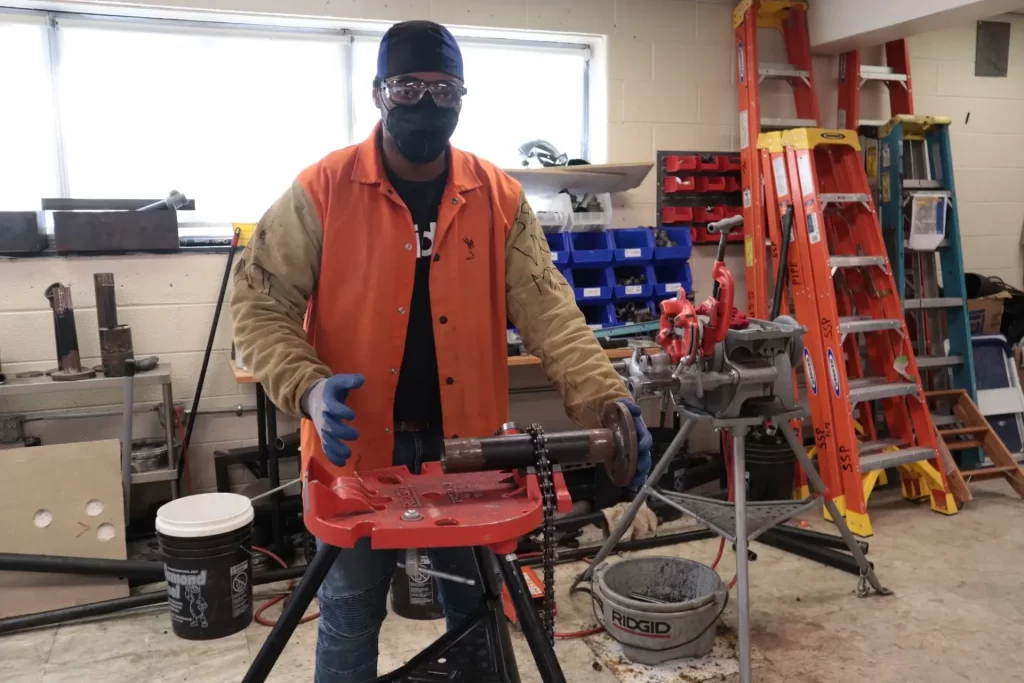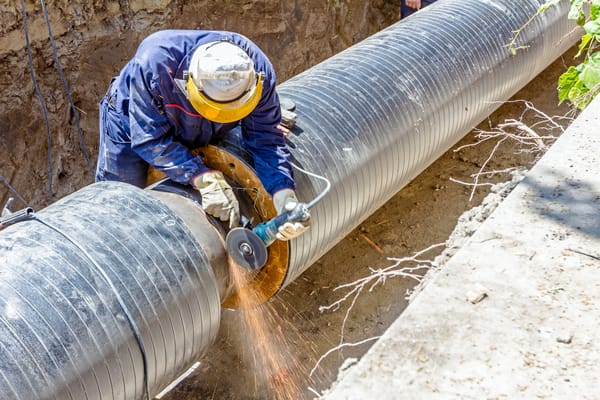
The pipefitting trade in Nashville, TN offers promising opportunities for those seeking a skilled trade career. With 43-46 active job listings in pipefitting-related roles and the construction industry projected to grow 6% from 2023-2033 1, this field is expanding rapidly. Entry-level pipefitters earn an average annual salary of $57,032, with union workers averaging $27.66/hour and experienced union pipefitters potentially making up to $87,680/year ($43.84/hour) 23. To become a professional pipefitter in Nashville, individuals must start with a high school diploma or GED, followed by comprehensive vocational training that aligns with National Center for Construction Education and Research (NCCER) standards, covering 1,296 hours of instruction and culminating in a recognized certificate 45. Let’s explore the complete pathway to launching and growing a successful pipefitting career in Nashville.
Pipefitters are skilled professionals who install, repair, and maintain piping systems used for carrying gases, liquids, and hazardous materials in commercial and industrial settings. Unlike plumbers who primarily work on water and drainage systems in residential buildings, pipefitters specialize in high-pressure and industrial applications.
This trade requires:
Pipefitters work in diverse environments including:

Yes, pipefitters in Nashville must obtain proper credentials to work professionally. The Nashville Mechanical, Plumbing, and Electrical Examiners and Appeals Board oversees licensing requirements for mechanical trades in the area.
While no universal state licensing exists for all pipefitting work, several important credentials enhance career prospects:
These requirements ensure pipefitters meet the local gas and plumbing codes, including requirements that gas piping systems must withstand pressure tests of at least 10 pounds per square inch gauge 6.

The first formal step is completing a comprehensive training program that aligns with industry standards. One of the best options in Nashville is through the Tennessee College of Applied Technology (TCAT), which offer programs specifically designed to provide the necessary skills.
Key educational components include:
| Training Option | Duration | Key Topics |
|---|---|---|
| TCAT Pipefitting Program | 12 months (1,296 hours) | Safety, math, reading blueprints, fabrication, welding |
| UA Local 572 Apprenticeship | 5 years | Hands-on work under journeyman pipefitters |
| Lee Company University | Variable | Specialized trade training, cost-free |
Completion of apprenticeship programs affiliated with unions like UA Local 572 or the Tennessee State Pipe Trades Association provides over 10,000 hours of combined classroom instruction and on-the-job training7. Those seeking free training opportunities should explore offerings from Lee Company University.
Earn a High School Diploma or GED: The first requirement for any pipefitting training program is a high school diploma or equivalent 4.
Enroll in a Recognized Technical Program: Consider the Tennessee College of Applied Technology programs (e.g., in Jackson or Knoxville), which provide 1,296 hours of instruction covering essential pipefitting knowledge and skills aligned with NCCER standards 89.
Secure an Apprenticeship: Apply to apprenticeship programs offered through organizations like:
Complete Required On-the-Job Training: Apprenticeships typically combine practical experience (working on real projects) with classroom instruction over multiple years.
Obtain Journeyman Pipefitter Status: After completing your apprenticeship, you can work more independently while continuing to develop skills.
Pursue Specialization or Master Certifications: With experience, obtain advanced credentials to enable supervisory roles or specialize in areas like high-pressure systems or industrial piping.
Nashville offers competitive compensation for pipefitters, particularly with union membership:
Benefits often include:
Experienced pipefitters with specialized certifications frequently earn above the reported averages, particularly during peak construction seasons when overtime becomes more common.
Pipefitters in Nashville must strictly follow Tennessee Occupational Safety and Health Administration (TOSHA) regulations, which include:
Violations of these safety standards can result in penalties ranging from $3,200 to $7,000 per incident, emphasizing the importance of strict compliance with established safety practices 1.

The pipefitting industry in Nashville is evolving with the integration of modern technologies:
Embracing these technologies can significantly increase job opportunities for pipefitters with updated skills and training.
To advance, pipefitters should:
With the 6% projected industry growth and consistent infrastructure development 1, career stability and advancement opportunities are strong in Nashville.
Starting a career in pipefitting in Nashville offers excellent potential with competitive wages, growing demand, and multiple paths for advancement. Whether you're completing your education or ready to apply for your first apprenticeship, it’s crucial to explore available opportunities.
To get started:
With proper training, experience, and continuing education, pipefitters in Nashville can build prosperous careers with excellent earning potential and job security.
https://www.ziprecruiter.com/Salaries/Union-Pipefitter-Salary-in-Nashville,TN ↩
https://www.indeed.com/q-pipefitter-helper-l-nashville,-tn-jobs.html ↩ ↩2
https://catalog.tbr.edu/preview_program.php?catoid=1&poid=86&returnto=6 ↩
https://catalog.nscc.edu/preview_course_nopop.php?catoid=23&coid=21359 ↩
https://tcatjackson.edu/programs/pipefitting-and-plumbing-technology ↩

